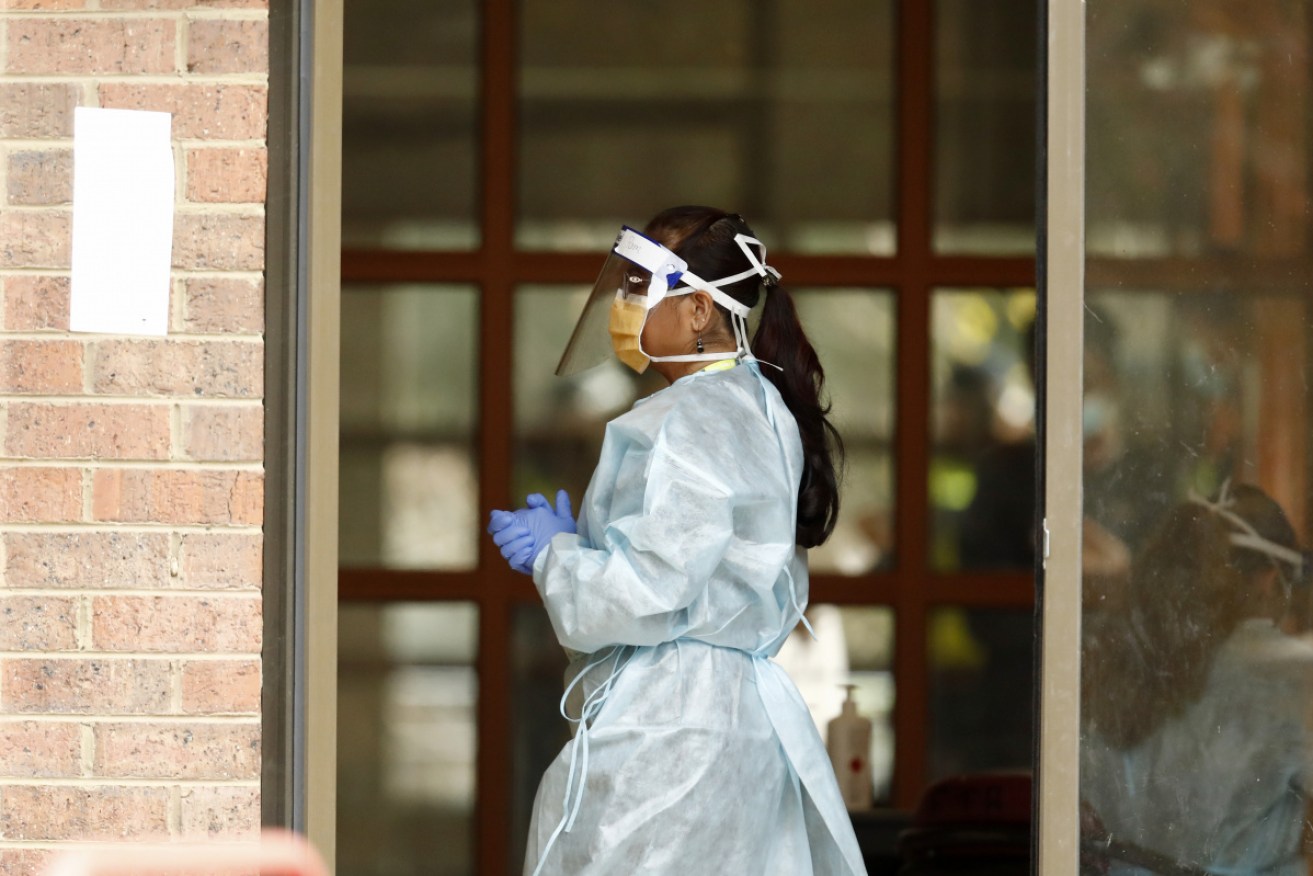How Victoria’s new at-home coronavirus testing will work

Melbourne's numbers need to come donw this week, but the city may have to get used to some lockdown measuers Photo: Getty
The Victorian Health Minister announced a new coronavirus program on Monday that will allow some people to be tested for the virus from their homes.
Jenny Mikakos said Victorians who could not get to a coronavirus testing site easily would have access to a free home test within 48 hours.
“We know for some vulnerable people, people who might be housebound because of disability or other chronic health conditions, it is challenging for them to be able to present to a testing station,” she said.
“We want to make sure that every Victorian has the opportunity to be tested.”
How will home testing work?
Under the new “call-to-test” program, Victorians will need to contact the state’s coronavirus hotline on 1800 675 398.

A drive through coronavirus testing facility in Melbourne. Photo: AAP
“You will be assessed by a nurse through that hotline,” Ms Mikakos said.
She said then with a referral from a GP, a home test would be organised, where healthcare workers would go to a person’s home within a 48-hour period.
The department can also help with a doctor’s referral if that is required.
The Victorian Department of Health and Human Services (DHHS) said the home tests would be run by nurses wearing appropriate PPE and observing all hygiene and physical distancing protocols.
Carers can also request a home test on behalf of a person they are caring for.
Who is eligible for a home test?
Victorians who cannot easily get to a testing site and have symptoms or have been identified as a close contact of a positive case will be eligible for a home test.
The Health Minister said the program was designed to make sure all Victorians who needed a test could get one.
“This is designed to ensure that approximately 200 vulnerable Victorians every day will have access to this new testing capacity,” she said.
Victorians with injury, chronic health, mental health or mobility issues, or carers looking after a person with a moderate to severe disability will be able to access this service.
Ms Mikakos said the home testing would be available throughout Victoria.
What has been happening up until now?
The chief executive of the Victorian Advocacy League for Individuals with Disability (VALID), Kevin Stone, said home testing “is potentially life-saving news”.
Mr Stone said it was particularly important for the thousands of Victorians with a disability who lived in group homes.
There have been more than 70 cases and two deaths linked to the sector.
“Many of them will have difficulty getting to a testing booth, difficulty getting out of the house, difficulty waiting and difficulty with the test itself,” he said.
Mr Stone said some people with disabilities living in group homes had experienced long delays before being tested.
He said in one case he had been told of, a staff member tested positive at a house with six residents but it took 15 days before the residents were tested.
Mr Stone said difficulty getting the residents to a testing site had contributed to the delay.
He said he hoped the announcement would help residents in group homes access a test more quickly if needed.








